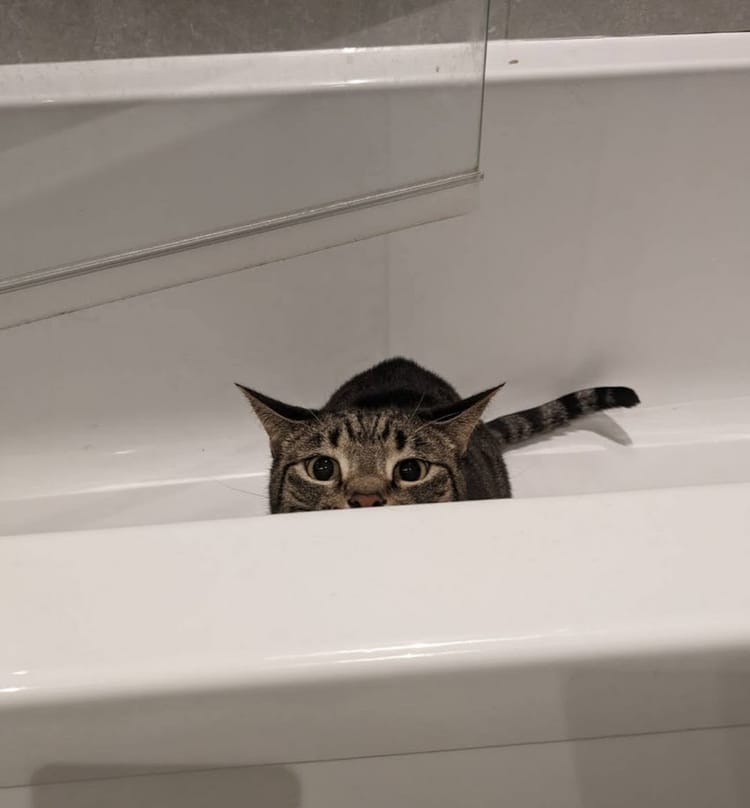Winning the "War"

A young man walks towards us in a busy city street. He is in a military uniform, new buttons gleaming, cap jaunty-angled, his eyes fixed on the camera. Something about his lanky frame and baby-smooth cheeks suggests he is more boy than man. Three women walk in the other direction, the prim shapes of the backs of their black heels, skirts, coats and hats tell us the rest: it’s the 1940s, which means these women are walking off to a different destiny than the one that faces our young soldier.
Over 70-million people fought in World War Two, so there must be around 70-million families who have some version of this photograph tucked into an album in the corner of a dusty bookshelf. I care about this one, because this man, captioned “EHB: 1941”, became my grandfather. With my privileged insider information, I can tell you that this was taken in Cape Town CBD, just after he completed his training in Youngsfield, a few days before he was sent to Egypt where - according to him - he single-handedly defeated Rommel. I can also tell you that the boy in this photograph is seventeen years old. He lied about his age and signed up when he was sixteen. Back then, that’s just what poor boys did, especially those who were born in small mining towns like Piketberg and - like every teenager in every small town throughout history - were desperate to leave it.
There’s a standard set of emotions one feels obliged to project onto photographs of young men about to head off to a Great War: stoic resignation, doomed innocence, courageous duty, bald fear. You can’t read a photograph without its context. But with this photograph, I have too much context: I can’t read it without also projecting my memories of the man this boy ultimately became, the jolly octogenarian whose bony knee I’d perch on while we paged through the album this photograph lives in. I wish you could have met my grandfather. He was a hoot. He could wiggle his ears and talk like Donald Duck, and he was seven-foot tall, and every old lady in Sedgefield had a major crush on him, and children adored him. We adored him so much that we’d let him show us his boring old photo albums.
You didn’t know my grandfather, so maybe you can read trepidation into this boy’s face. I can only see a kid playing at looking serious, his expression about to crack into a big goofy grin, like this whole war thing’s just a silly game.
Look, I’ve got more evidence on my side to support this reading: the album itself is labelled “Winning the ‘War’”, with ‘War’ written just like that, in inverted commas, like come on, can you really believe this shit? Apart from the military uniforms, you might be forgiven for thinking that it’s an album of holiday snaps: it’s all photos of the pyramids, camels, statues in Damascus (indeed, this was the only time my grandfather was ever able to travel overseas), merry group shots of shirtless men drinking beer, a kitten they adopted in Cyprus, swimming in a lake near Beirut, boys messing around in drag making ironic Nazi salutes (if you were literally risking your life to stop Nazis, I think you’re allowed to make ironic Nazi salutes).

There’s a whole section featuring only photos of my grandfather standing next to a different hot young woman, each one labelled only “EHB + friend”, the cad! They could be photographs of a Boy Scout camp in the desert. I mean, presumably they were also finding time to fight a war at some point amongst all this growing up, but there’s no evidence of it in the photographs. It’s an album of boyhood, cusp-of-manhood, the war merely a backdrop.
He did have some friends who died, yes, but trauma and death never featured in his stories. Instead, his war stories were always of camaraderie, friendship, adolescent mischief. My grandfather fought in World War Two, but all evidence is that he had a grand old time doing it. I often wonder if this is something about the configuration of his personality, or if he was just extraordinarily fortunate.

When he was much older, in his eighties, my grandfather’s most beloved possession was a bright blue fishing boat, really nothing more than a few planks bound together by twine and hopefulness. Tempting fate, he named it Lucky. Inevitably, that hunk of junk sank to the bottom of the Atlantic Ocean, nearly killing him. He immediately got a replacement boat, which he also painted bright blue. And you know what he named that damn boat? Lucky II. It is impossible not to love a man so optimistic that he names a boat Lucky II.
I don’t know what any of that has to do with this photograph of this bright-eyed boy about to go off to war, no trace of poignancy in his face. Maybe everything. I think some people go through life with a real sense of how they’re playing a part in history, and others just bumble around having fun with their friends hoping things will work out for them. Irritatingly, they usually do.
Updates from Sam-land
I've just returned home after a WHOLE MONTH in South Africa, spending time with friends and family. My inbox is a hellscape, but my heart is full, my brain feels reconstituted, and I'm brimming with joy.
Next week, we get back to work!







Member discussion